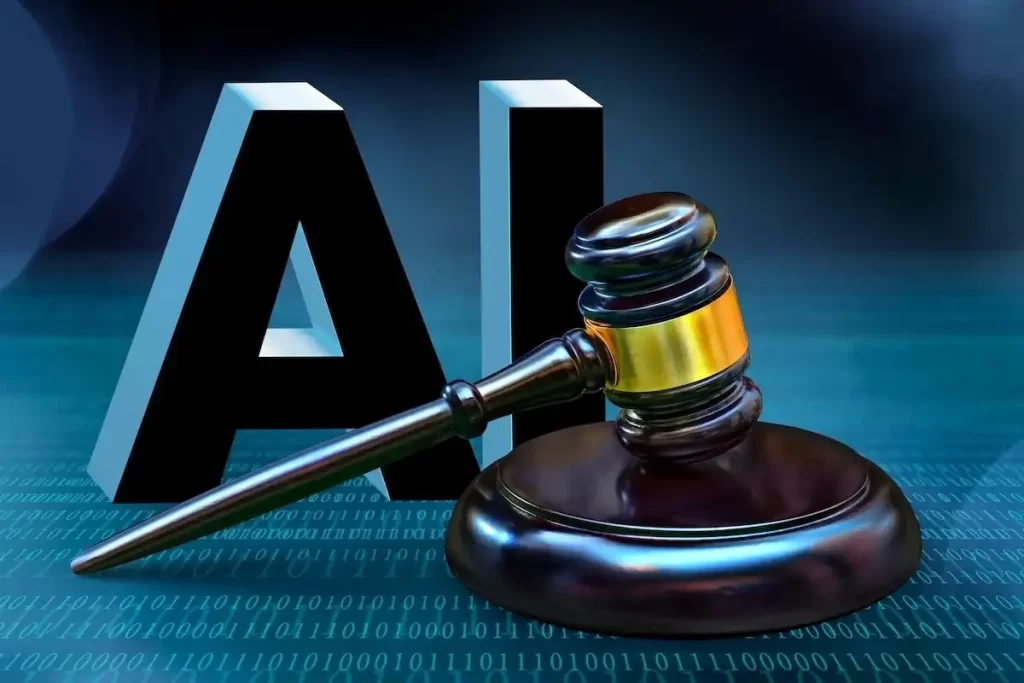
AI Music Startup Suno Claims Fair Use of Copyrighted Songs
In a recent development in the ongoing debate over the use of copyrighted material in AI-generated content, AI music startup Suno has acknowledged that its AI models were trained on copyrighted music. The company argues that this action is protected by the fair use doctrine leading to a discussion, within the music industry.
The RIAA Lawsuit
The Recording Industry Association of America (RIAA), representing major record labels like Sony Music Entertainment, Universal Music Group, and Warner Music Group, filed a lawsuit against Suno and another AI music startup, Udio, on June 24. The lawsuit claims that these companies violated copyright laws by utilizing music owned by the record labels to teach their AI systems.

Suno’s Fair Use Defense
In response to the lawsuit, AI music startup Suno has come forward, admitting that its AI model is indeed trained on copyrighted music. The company maintains that this action is safeguarded by provisions, under the fair use principle.
Mikey Schulman, CEO of Suno, explained in a blog post that the AI music startup trains its models on high-quality music found on the open internet, which inevitably includes copyrighted material owned by major record labels. Schulman compared the process to a child picking up tunes by listening to music stating that learning does not equate to infringement.
The Fair Use Doctrine
The fair use doctrine, as described by the U.S. Copyright Office permits the use of copyrighted material without a license, in situations, like criticism, commentary, news reporting, teaching, scholarship and research. Yet how this doctrine applies to AI generated content is still uncertain.
While the AI music startup claims that its use of copyrighted music falls under fair use, the RIAA strongly disagrees. In a post shared on X (previously known as Twitter) the RIAA stated that Sunos large scale infringement does not meet the criteria, for use. They accused the company of taking artists creations and presenting them in a way that rivals the content.

The David and Goliath Narrative
In its legal filing, AI music startup Suno portrays the RIAA lawsuit as a David and Goliath situation, with major record labels attempting to stifle competition and innovation. The company believes that its AI technology serves as a resource, for musicians, educators and individuals to craft music whereas the labels view it as a challenge, to their market dominance.
The Unresolved Debate
The discussion, on the inclusion of copyrighted content in AI generated works continues to be a topic of debate. Although the U.S. Copyright Office presently does not permit copyright protection for AI created art making a distinction from human produced creations the matter of training data and the developmental process of AI models represents an area, within copyright legislation.
As AI music startup Suno and other companies continue to push the boundaries of AI-generated content, the legal landscape surrounding these technologies is likely to evolve. The result of the case involving RIAA, against Suno and Udio may establish a standard, for how copyrighted material is utilized in AI training.

The Future of AI-Generated Music
The emergence of AI music startups like Suno has sparked both excitement and concern in the music industry. Some individuals view AI generated music as a means to boost creativity and make music creation more accessible, to all while there are concerns, about how it may affect artists incomes and the authenticity of their creations.
The ongoing discussion highlights the necessity, for the music industry and legal system to adjust to the changing environment influenced by AI generated content. The case of AI music startup Suno and the RIAA lawsuit serves as a critical touchpoint in this ongoing conversation, highlighting the need for clear guidelines and regulations surrounding the use of copyrighted material in AI training.
Only time will tell how the courts will interpret the fair use doctrine in the context of AI-generated music and whether AI music startups like Suno will be able to continue their practice of training models on copyrighted works. With the progress of technology and the increasing number of businesses joining the field the music industry faces the challenge of striking a balance, between fostering creativity safeguarding artists rights and preserving the integrity of works.




